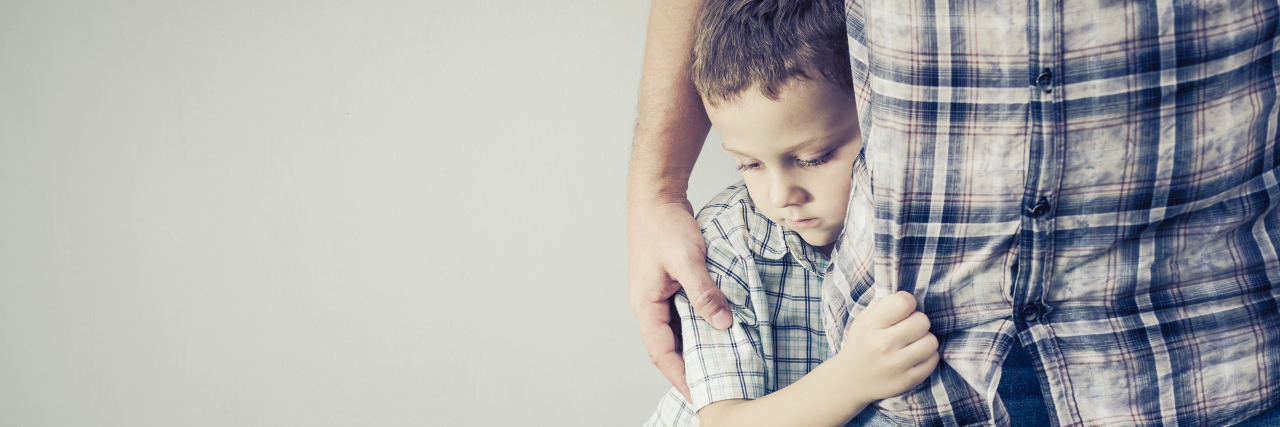The Anxiety Parents of Medically Complex Kids Face in the Aftermath of COVID-19
The world is currently grappling with COVID-19, a new-to humans virus that causes respiratory infection and can lead to serious or fatal health complications, and its impact on almost every part of our daily life. Irrefutably, this is even more devastating for more vulnerable populations, like the elderly, and children and adults with pre-existing conditions. Things are particularly challenging for parents of kids with disabilities, who are finding it increasingly difficult to deal with the new “normal” we will likely face in the aftermath of the virus.
As the parents of a medically complex 9-year-old son diagnosed with mitochondrial disease, my wife and I were quickly thrown into a constant state of heightened anxiety — the anxiety that comes with managing the medial obligations associated with such a life-threatening disease. There is no doubt it is a full-time job. If COVID-19 has changed anything in our not-so normal life, it is this: we as parents now find ourselves welcoming two uninvited guests in the form of more anxiety and increased responsibility.
When your friends, family, co-workers and the country at large starts to return to what life used to be like before coronavirus, you quickly understand that the “new” you will not be the same anymore. It is difficult to deal with, knowing what we know about this virus and how long it might haunt the world, and that the vulnerable populations will always be at risk. This is a sad reality we must come to terms with.
Regardless of social distancing and the constant hand washing, being exposed to asymptomatic people could easily kill my son before his mitochondrial disease does — a disease that has already cruelly snatched his childhood away.
This new worry impels parents like us to pause for a moment and think about all the family and school gatherings, birthday parties, and times we had dinning out or going to the movie theaters or local beach.
Even something as seemingly normal as doctor’s appointments and routine hospital admissions will no longer be the same and entail the risk of a bigger concern. We will definitely be rethinking what is essential and what cannot wait. Clinical visits will no longer be as frequent.
To all the hospitals, doctor’s offices, therapy centers and clinics — please do not get offended if we ask “harmless” questions about your COVID-19 protocols for keeping your patients and staff safe and facility sterilized. By the way, thank you for asking screening questions before we arrive to any appointment. Simple questions such as these may well end up saving a life.
As a family, we will now be living with even more concern than ever. Will the friends visiting us pose a risk to our son, or will the family anniversary party cause a problem, a couple of days later?
How would we know, when so many people are seen not practicing proper social distancing or even know they are asymptomatic? That one innocent sneeze could trigger a deadly chain of events in someone like my son who is constantly battling mitochondrial disease.
Having a medical port, feeding tube, leg braces and wheelchair (for long distances), CPAP, O2 and taking all his medications was already tedious and painful for my son. We will now have to add a mask to the already complicated routine? Managing this arsenal of supplies and equipment feels like another full-time job sometimes, and we often find ourselves feeling drained.
So yes, you should be excited when you are allowed to go out and enjoy so much that life has to offer. Yes, celebrate when social distancing restrictions are relaxed or removed. Yes, be thankful to return to work. After all, there is so much to rejoice about when that day comes.
But please remember my family will forever live a “not so normal” life, doing all that we can to keep our son’s safe during this pandemic. Let me take this opportunity to say this to all those who get offended when we are unable to attend a large function, or when we say a reluctant “no” to joining you at a family gathering: I’m sorry, but we hope you understand. Our lives, and so many families whose kids have disabilities have been and will continue to be different – regardless of how soon lives become “normal” for those around us.

